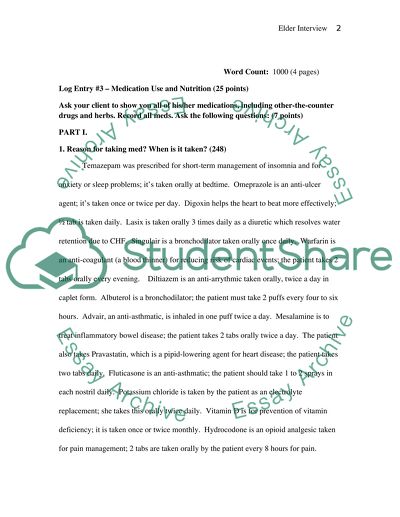Cite this document
(“Elder Interview Essay Example | Topics and Well Written Essays - 1000 words”, n.d.)
Retrieved from https://studentshare.org/nursing/1431395-elder-interview
Retrieved from https://studentshare.org/nursing/1431395-elder-interview
(Elder Interview Essay Example | Topics and Well Written Essays - 1000 Words)
https://studentshare.org/nursing/1431395-elder-interview.
https://studentshare.org/nursing/1431395-elder-interview.
“Elder Interview Essay Example | Topics and Well Written Essays - 1000 Words”, n.d. https://studentshare.org/nursing/1431395-elder-interview.


